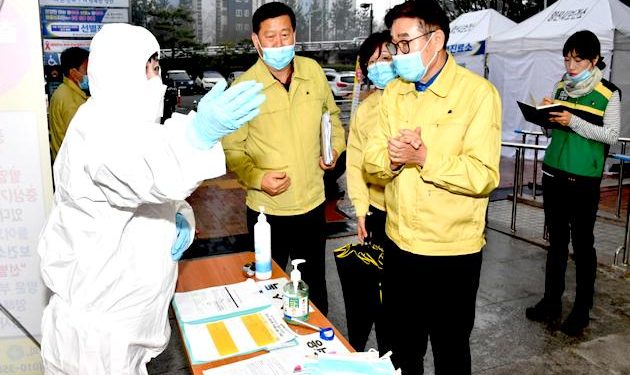- South Korea marked its deadliest day of the pandemic on December 14, with the Korea Disease Control and Prevention Agency announcing 94 deaths in the past 24 hours
- Park Hyang, a senior Health Ministry official, said medical resources are quickly being depleted in the densely populated capital Seoul and nearby metropolitan areas
- Over 1,480 patients were still awaiting admission to hospitals or treatment shelters, while at least 17 patients died last week at home or at facilities while waiting for beds
SEOUL, South Korea – South Korea marked its deadliest day of the pandemic on December 14, with the Korea Disease Control and Prevention Agency that day announcing 94 deaths in the previous 24 hours, with a record 906 patients in serious or critical condition.
Park Hyang, a senior Health Ministry official, said medical resources are quickly being depleted in the densely populated capital Seoul and nearby metropolitan areas, where some 86 percent of intensive care units designated for COVID-19 treatment were already occupied.
Over 1,480 patients were still awaiting admission to hospitals or treatment shelters, while at least 17 patients died last week at home or at facilities while waiting for beds.
More than 81 percent, out of a population of more than 51 million, are fully vaccinated, but only 13 percent were administered booster shots.
Experts say South Korea’s devastating surge underscores the risk of putting economic concerns before public health when the highly contagious delta variant has reduced the effectiveness of vaccines and most people are still waiting for their booster shots.
Even as infections grew this month, the government has been hesitant in reimposing stronger restrictions, citing public fatigue, and President Moon Jae-in had declared that the country will not “retreat to the past.”
Officials waited until last week to modestly sharpen social distancing, banning private gatherings of seven or more people in the greater capital region and requiring adults to verify their vaccination status to enter restaurants and other indoor venues.
Health experts have suggested imposing stronger curbs, such as work from home and expanding the government’s financial support to small businesses, to ensure compliance with social distancing.
“What we absolutely need now is an urgent standstill to allow our medical system to restore its ability to respond (to the virus),” a coalition of doctors’ groups, including the Korean Society of Infectious Diseases, said in a statement. “We express deep concern that there will be a high possibility of serious fatalities if (the government) fails to employ stronger measures to reverse the crisis before it’s too late.”






